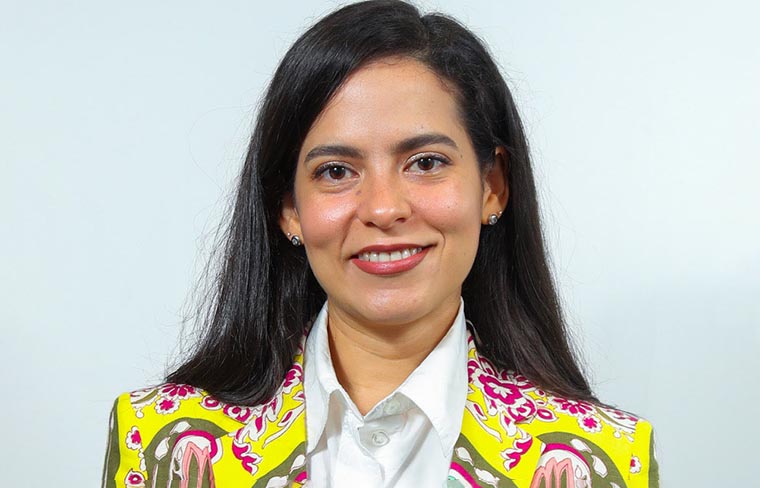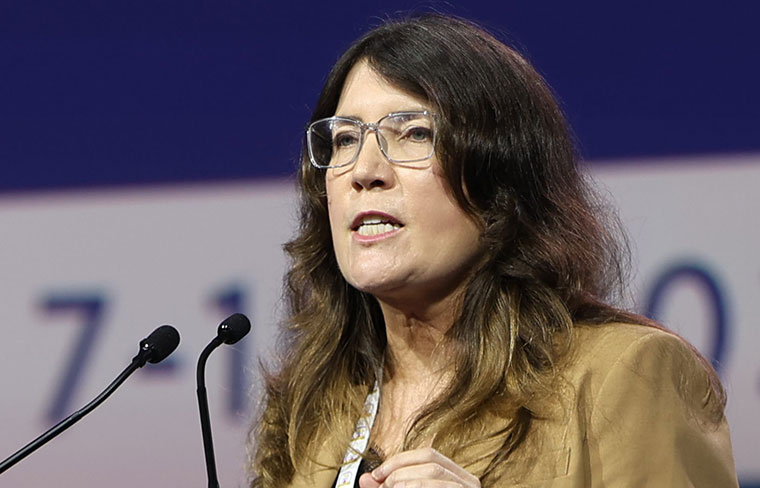Smoking Cessation in Lung Cancer Screening: The Latest Randomized Controlled Trial Evidence
Andrea C. Johnson, PhD, MPH+more
The SCALE trials aim to uncover key elements of successful smoking cessation programs by evaluating various intervention combinations. Read more
Where There’s Smoke: The Global Threat of Lung Cancer in Patients with No Smoking History and its Implications in Screening
Haleigh BehrmanDr. Lucia Viola says that access to genomic profiling is crucial for gathering information about patients who do not smoke. Read more
Breaking the Silence: The #HearHer Campaign for Women with Lung Cancer
Lauren Kiel, BS+more
Narjust Florez, MD, and Angela Morabito, BS, launched the #HearHer campaign to raise awareness about the increasing incidence of lung cancer among women and the frequent delays in diagnosis. Read more
Strength in Numbers: Researchers and Advocacy Groups Unite to Decode the Impact of Genetics on Lung Cancer Risk
Haleigh BehrmanA new genetics study aims to collect data from 10,000 participants diagnosed with lung cancer to improve future outcomes and enhance research. Read more
Data Shows Screening Programs Can Shift Stage Distribution at Diagnosis
Erin JungmeyerDr. Mike Gieske said since implementing a multidisciplinary screening approach, his healthcare system has seen a 19% decrease in late-stage lung cancers, and they now see more early-stage than late-stage lung cancers. Read more
Older Age Alone Does Not Preclude Benefit From Early Detection
Krithika Subramanian, PhDDr. Matt Warkentin says in those without significant comorbidity and who are fit for surgery, screening may provide survival benefits. Read more
Study Shows Patients at Lowest Risk May Benefit from Longer Intervals Between Lung Cancer Screening
Fred GebhartDr. Annette McWilliams says the PanCan nodule management protocol demonstrates potential to streamline lung cancer screening and management processes. Read more
First Presidential Symposium to Explore Practice-Changing Research in Lung Cancer Screening, Immune Oncology
Fred GebhartThe session will also include late-breaking data from HARMONi-2, NeoCOAST-2, and TROPION-Lung01 as well as an address from IASLC President Dr. Paul Van Schil. Read more
IASLC President-Elect Reflects on Importance of Prevention, Screening, Biomarker Testing and More
Fred GebhartDr. Caicun Zhou discusses his plans for WCLC 2024 as well as his goals for his time as IASLC President. Read more
Screening Experts Outline Considerations for LDCT Screening Programs
Erin JungmeyerLead author Dr. Claudia Henschke says a recently published perspective from the IASLC Early Detection and Screening Committee explores several components of effective screening efforts, including timing between screenings. Read more











